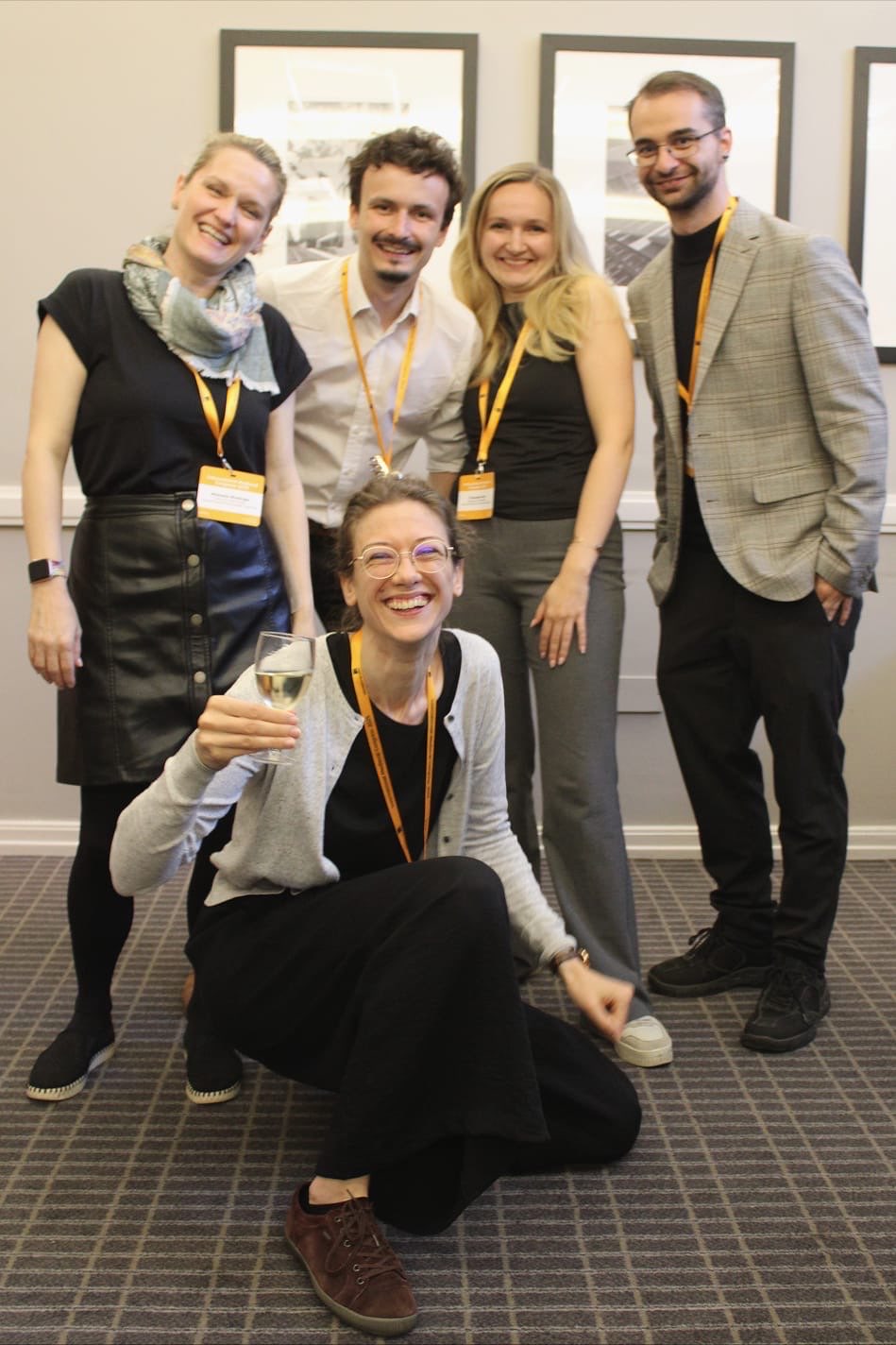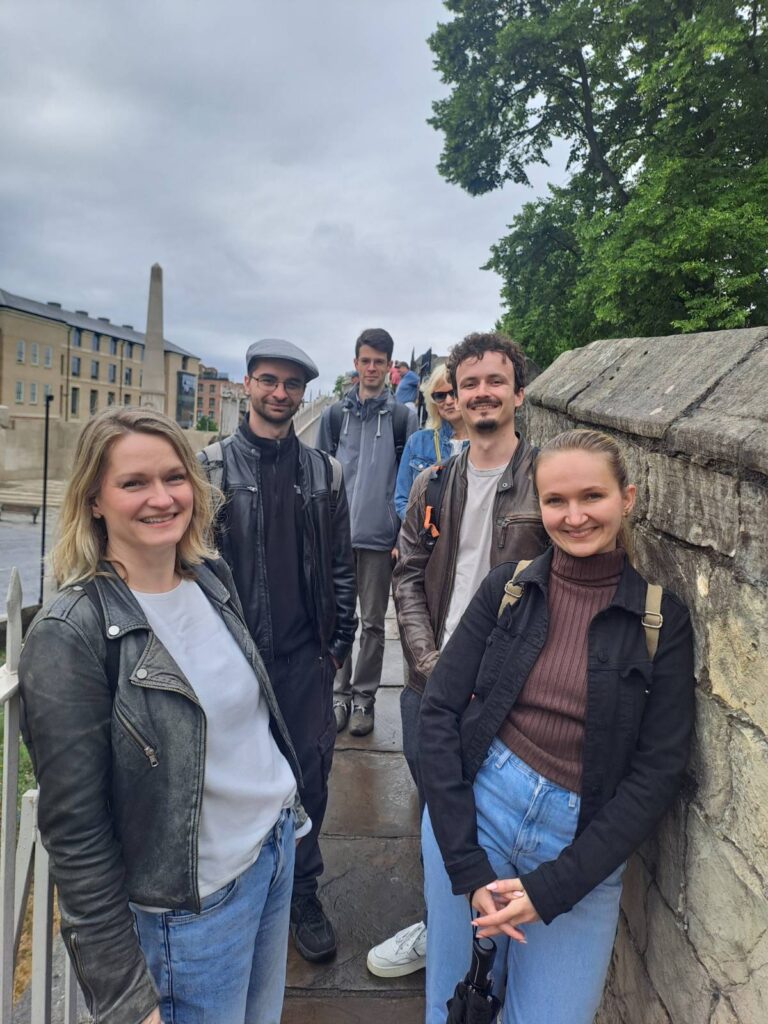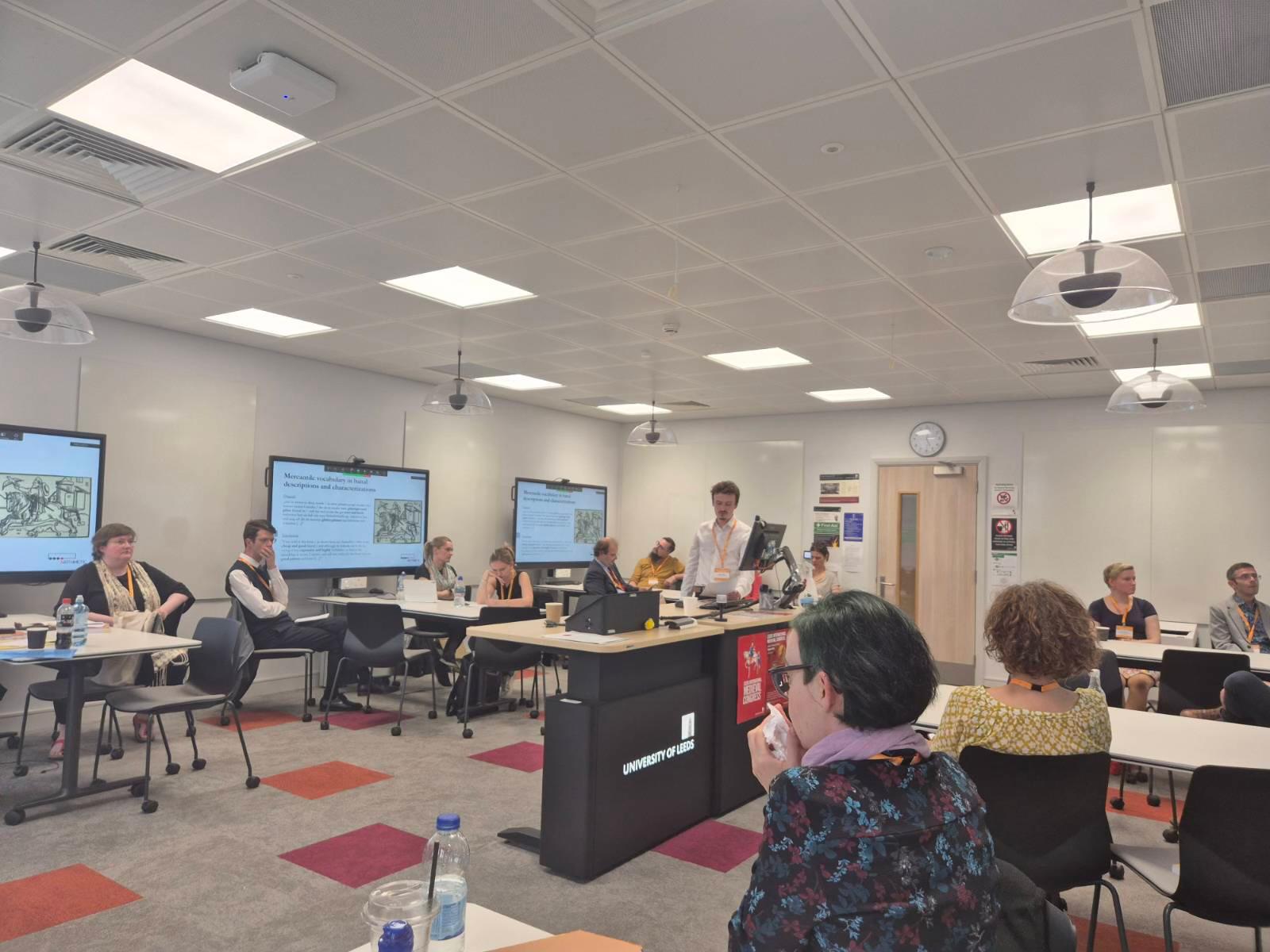By Gregor Kodym
This year’s International Medieval Congress, in which our team participated together with Edith Kapeller from the Klosterneuburg Abbey Library and former team member Bernhard Bauer from the Faculty of Humanities (University of Graz), took place from 7th to 10th July in Leeds, UK. Right from the start, our trip was all about the Middle Ages, even outside the regular congress programme. As we arrived early on the weekend before the congress began, we had enough time for a trip to York, where we not only walked along the late medieval city walls, but also visited England’s largest medieval church, York Minster.
On Monday, the 32nd International Medieval Congress, this year under the especially fitting focus „Worlds of Learning“, finally began, and we threw ourselves into various panels, from which we hoped to gain new ideas and inspiration as well as new and inspiring contacts for our own project. For me in particular the congress offered an exciting and enriching first insight into the diverse fields of research of other colleagues and into the organization of a large academic conference. We usually reflected on the long and intensive days over dinner together in the evening or over breakfast the next morning.
On Wednesday, 9th July, the time had finally come, and we were able to present our current research results as part of our panel „No Pain, No Gain: What We Learn When We Study Mathematical Texts I. & II.“. In a total of six presentations, we gave a very interested audience an insight into our research work and discussed our results with them. In the first section, Franziska Putz reported on the intertwining of narrative structures and social discourse in arithmetic books of the late Middle Ages and early modern period using the „Josephsspiel“ as an example, Michaela Wiesinger spoke about text-image relationships in late medieval and early modern arithmetic books, and Bernhard Bauer compared vernacular and Latin idioms in arithmetic books. In the second section, Edith Kapeller presented her research findings on medieval signatures in the Klosterneuburg Abbey Library, which she developed in collaboration with Christina Jackel. Finally, it was my turn to present my current findings on mathematical and mercantile knowledge and vocabulary and their relevance in late medieval and early modern literature, using the example of „Fortunatus“. Lastly, Norbert Orbán talked about the challenges that can arise when transcribing late medieval and early modern German-language arithmetic manuscripts using the AI-supported text recognition software „Transkribus“, and how these can be overcome.
Overall, we look back on the IMC 2025 with great satisfaction and are delighted about the many inspiring researchers we met, the colleagues we caught up with again, and the valuable insights we once more gained from the congress for our own work. This week in Leeds will stay in our memories for sure.




Schreibe einen Kommentar